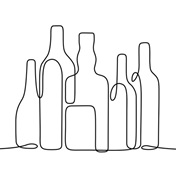A study conducted at Durham University's Institute of Advanced Study and Volterra Consulting UK shows that social networking is a key factor in the spread of the rapid consumption of large amounts of alcohol – binge drinking - which is blamed for serious anti-social and criminal behaviour.
Researchers say the findings have major implications for Government policy makers charged with tackling the problem, which has longer-term and costly health implications for the nation.
The research team, which estimates there are least one million binge drinkers in the 18 - 24 year old population participating in 1.5 million binge drinking events each week, used complex modelling techniques and interviews with 504 18 - 24 year olds to draw their conclusions.
How the survey was done
Binge drinkers were defined as participants who got drunk on three or more drinks (women) or on four or more drinks (men) at least once a week, or having ten or more drinks, but not necessarily getting drunk at least once a week (both men and women). Using this criteria, nearly one-fifth (16.2 per cent) of the young people surveyed were classed as binge drinkers.
Everyone in the survey was asked whether about the drinking behaviour of their friends, family and colleagues. Binge drinkers were more likely to describe their associates, particularly their friends, as fellow binge drinkers.
For example, 85 per cent of the binge drinkers thought that all, almost all or most of their friends are binge drinkers, compared to 41 per cent of non-binge drinkers who described all, almost all or most of their friends as binge drinkers.
Conversely, only three per cent of binge drinkers had no or hardly any friends that binge drank, compared to 22 per cent of non binge drinkers
Social networking influences drinking
The second part of the research set out to test whether 'imitation behaviour' or copying was sufficient to account for the binge drinking through applying a series of models.
It found that the 'small world' model, showing the interaction between overlapping friendship groups, best explained the statistics for the first part of the research. This suggests complex social networking and the behaviour exhibited through this is the root cause of binge drinking.
Researchers say these findings pose challenges for policy makers in terms of identifying where and at whom to target their policies - they would need to tap into a series of complex friendship networks for their efforts to have any effect. However, if they could achieve this, triggering a reverse in binge drinking behaviour, the effect would be quite dramatic.
The research is published online via an open access website http://arxiv.org/ (which is authored refereed before posting).
Lead author, Paul Ormerod, of Durham University's Institute of Advanced Study and Volterra Consulting UK, said: "Binge drinking has become widespread among young people in Britain. Vomiting, collapsing in the street, shouting and chanting loudly, intimidating passers-by and fighting are now regular night-time features of many British towns and cities.
Young women some of the worst
"A particularly disturbing aspect is the huge rise in drunken and anti-social behaviour amongst young females.
"We show that the rise in binge drinking is a fashion-related phenomenon, with imitative behaviour spreading across social networks, is sufficient to account for observed patterns of binge drinking behaviour.
"This discovery is helpful to policy makers as it suggests, for example, that strategies based on the concept that there is a small number of 'influentials' who are important in the spread of anti-social behaviour are not likely to be very successful." – (EurekAlert)
June 2008
Read more:
Binge drinkers cause accidents
Early drinking ups alcoholism risk




 Publications
Publications
 Partners
Partners














